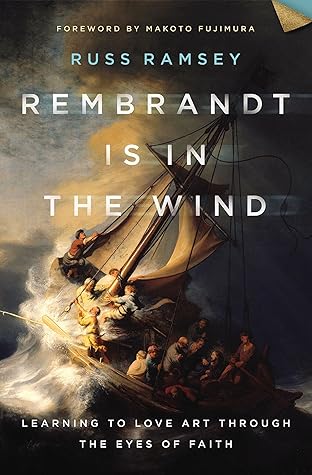More on this book
Community
Kindle Notes & Highlights
by
Russ Ramsey
Read between
April 18 - April 25, 2025
Henry O. Tanner created The Annunciation to show how the Lord would complete the redemption he promised to Abraham as the patriarch held the knife above his son.
As for Lilias, she responded to the suffering she saw with a ministry of presence. And yet, she bore in her character many qualities that made so many of the artists who came before her so great. Like Michelangelo, she was captured by beauty. She instinctively knew there was such a thing as glory and that we were made for it, to be part of it. Michelangelo and Lilias both sought that glory by trying to make from stone hearts of flesh.
Her biographer, Miriam Rockness, said, “The pain of which Lily spoke was the inevitable sense of loss any human being experiences when recognizing the toll of giving up something good for something he or she deems better.”
As she lay dying, friends gathered around her. One asked what she saw. She said, “I see a chariot with six horses.” A friend asked, “Are you seeing beautiful things, Lily?” She said, “Yes, I see many, many beautiful things.
Service to the Lord is never wasted, even if people don’t see it. God sees it and uses it. This wasn’t just Lilias’s hope; it was her confidence.
She said, “Let us dare to test God’s resources. Let us ask him to kindle in us, and to keep aflame that passion for the impossible, that God might make us delight in it with him, because God doesn’t find anything impossible. Nor should we. And we delight in it with him until the day we shall see it by his grace transformed into fact.”36
She saw beauty everywhere. To read her journals and see her sketches and paintings is to see the overflow of a heart enamored with the world she inhabited. Even in the toughest conditions, she marveled at the lilies that grew from the de...
This highlight has been truncated due to consecutive passage length restrictions.
During one particularly difficult time in her work in Algiers, Lilias took her diary into her garden to pray. She wrote, “A bee comforted me very much this morning. He was hovering above some blackberry sprays just touching flowers here and there, yet all unconsciously life, life, life was left behind at every touch.”
Give yourself to a craft, even if you only have a little time, even if you sometimes step away from it for a year or two. Don’t consider yourself to be someone who used to do something. If you’ve learned guitar but haven’t picked one up in a while, don’t say you used to play. Say you play. It’s been a while, but you do play.
Learn to contribute beauty to this world—modest though your part may be.
The mastery of something leads to a greater enjoyment of it. Singers, musicians, painters, writers, athletes, and artists of all stripes know this. The harder we work at something, the more we are able to enjoy it.
What are you mastering? What are you practicing in order to make clear what you don’t yet know? If you’re anything like me, I’m sure you reach points where you begin to wonder if it might just be easier to plateau. And if not plateau, then quit altogether. Don’t. Please. This world is short on masters, and consequently, it’s a world short on joy too.


